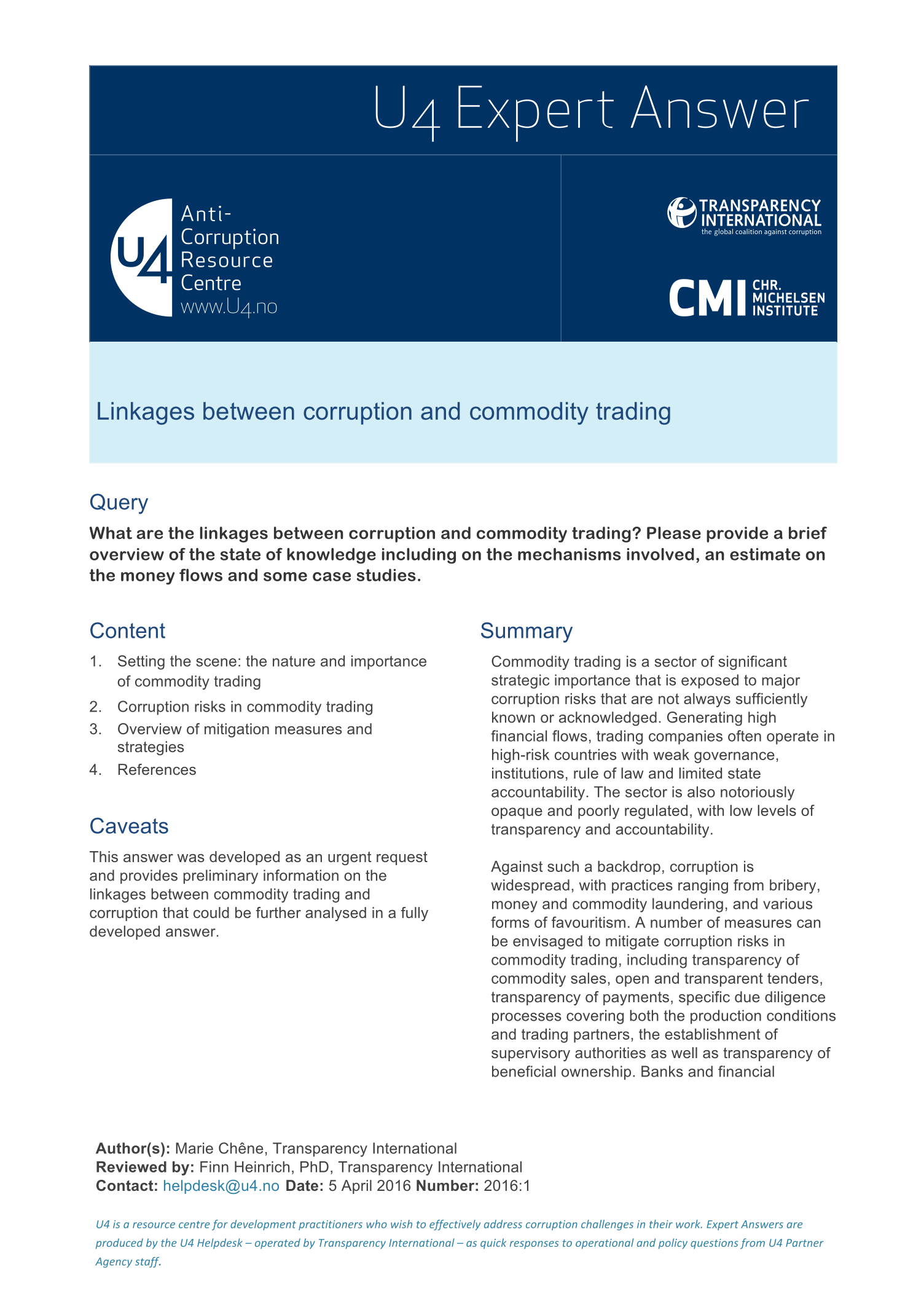U4 Helpdesk Answer
Linkages between corruption and commodity trading
Commodity trading is a sector of significant strategic importance that is exposed to major corruption risks that are not always sufficiently known or acknowledged. Generating high financial flows, trading companies often operate in high-risk countries with weak governance, institutions, rule of law and limited state accountability. The sector is also notoriously opaque and poorly regulated, with low levels of transparency and accountability.
Against such a backdrop, corruption is widespread, with practices ranging from bribery, money and commodity laundering, and various forms of favouritism. A number of measures can be envisaged to mitigate corruption risks in commodity trading, including transparency of commodity sales, open and transparent tenders, transparency of payments, specific due diligence processes covering both the production conditions and trading partners, the establishment of supervisory authorities as well as transparency of beneficial ownership.

Cite this publication
Chêne, M. (2016) Linkages between corruption and commodity trading. U4 Expert Answer 2016:1
Disclaimer
All views in this text are the author(s)’, and may differ from the U4 partner agencies’ policies.
This work is licenced under a Creative Commons Attribution-NonCommercial-NoDerivatives 4.0 International licence (CC BY-NC-ND 4.0)

